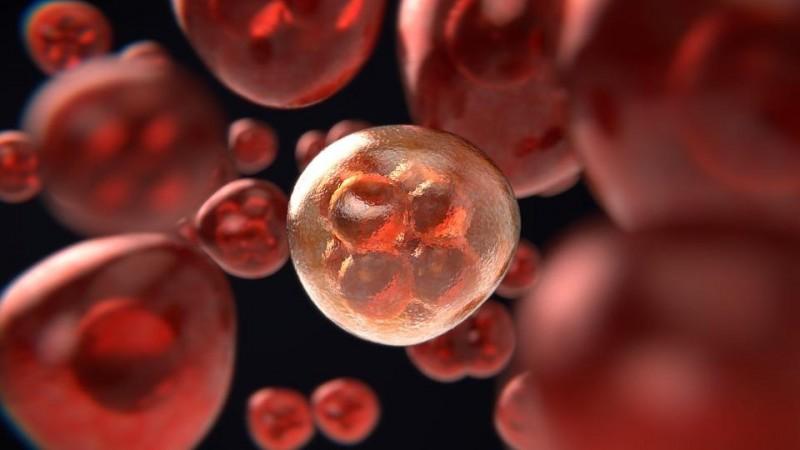Over 1.41 million cases of prostate cancer are reported annually worldwide. Fortunately, this cancer has a 5-year relative survival rate of nearly 100 percent. However, resistance to treatment is a concern while combating the disease. Offering hope in overcoming this challenge, scientists have found that targeting a single enzyme can kill prostate cancer cells.
Through a new multi-institutional study, researchers found that targeting an enzyme known as PI5P4Kα can help destroy cancer cells. It was learnt that the protein played a key role in the metabolism of prostate cancer and the development of resistance to therapies. The findings, which were published in the journal Science Advances, show promise for improving treatments of cancers affecting other parts of the body as well.
"This is the first time this enzyme has been implicated in prostate cancer, and we expect that it will prove relevant to other cancers as well. An important element of improving precision medicine is using as many tools as possible to treat cancer while mitigating the risk of resistance," said Dr. Brooke Emerling, co-senior author of the study, in a statement.
Hijacking A Crucial Pathway

The prostate is a walnut-sized gland that is located below the urinary bladder and in front of the rectum. It is an integral part of the male reproductive system. The primary function of the prostate is the production of the nourishing fluid that aids in the transportation of sperm. In addition, the gland also helps in the regulation of urine flow and the production of male hormones.
In order to grow and function properly, the prostate requires male sex hormones known as androgens, which are composed of testosterone and other male hormones. When cancer begins growing in the gland, it hijacks the androgen signalling machinery of the prostate, growing rapidly and spreading quickly.

However, treatments aimed at disrupting this pathway are effective in suppressing prostate cancer. These therapies lower the levels of androgens, particularly testosterone. Unfortunately, around 10-20 percent of patients develop resistance to this treatment within five years. This causes the now treatment-resistant cancer to spread to others parts of the body.
"Understanding how prostate cancer develops resistance is critical for discovering new therapeutic strategies to delay or reverse the progression of prostate cancer," highlighted Dr. Emerling.
Giving Rise to Resistance
The current study was spurred by an interesting observation made by the team: the levels of PI5P4Kα were high in several patients suffering from treatment-resistant prostate cancer. This led the researchers to posit that the enzyme played a role in the disease's ability to counter treatment and progress. "It was that initial observation from the patient data that really got us excited," noted Dr. Emerling.

PI5P4Kα belongs to a group of enzymes known as PI5P4Ks. These proteins regulate the metabolism of lipids, which include a variety of molecules such as fats, hormones and several vitamins. In comparison to other metabolisms in the body, the therapeutic potential of targeting lipid metabolism as a cancer treatment has gained prominence only recently.
Utilizing multiple prostate cancer model systems, the authors demonstrated that the inhibition of PI5P4Kα could destroy treatment-resistant prostate cancer. "What's remarkable is that we've found an enzyme that can be targeted against prostate cancer even in cases where treatments that lower hormones are ineffective or where resistance has developed. This could give us a whole new weapon against prostate cancer and other cancers that rely on this enzyme," stressed Dr. Emerling.
As the interest in lipid metabolism for cancer treatment grows, the team is hopeful about the future scope of this approach. Dr. Emerling expressed: "Treatments that target lipid metabolism could be an unexplored treasure trove, and it's something researchers are very interested in right now. We're working to develop drugs to target this enzyme, and there are several companies out there developing their own drugs as well."














